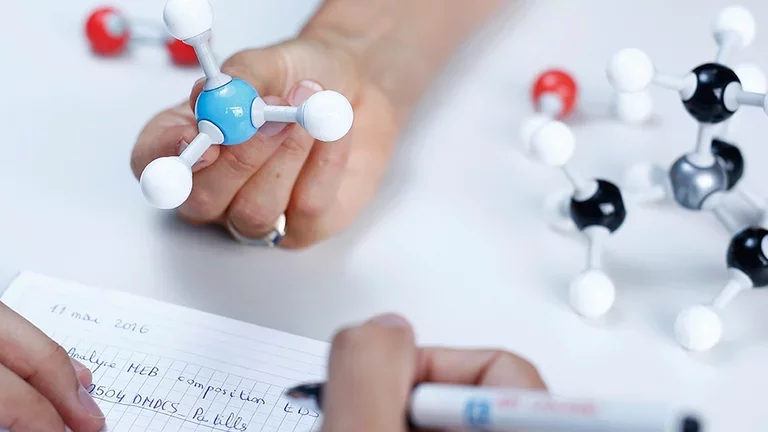Air Liquide announces the winners of the “Essential Molecules Challenge”
- News
- Innovation

Willing to reinforce its focus on science for accelerating innovation, the Group launched an annual competition called the Air Liquide Essential Molecules Challenge. Essential molecules such as O2, N2, H2 et CO21, embody Air Liquide scientifique territory. The jury for the first edition of the Air Liquide Essential Molecules Challenge selected three projects from a total of 130 scientific proposals submitted by academic teams, R&D departments and start-ups from 25 countries. This year’s distinguished winners are:
- Kevin Sivula, professor at Ecole Polytechnique Fédérale de Lausanne (Switzerland), on the subject of “Sunny H2 in a bottle”, or how to produce hydrogen out of water using solar energy;
- Susumu Kitagawa, professor at Kyoto University, and Ryotaro Matsuda, professor at Nagoya University in Japan, on “Small molecules in my pocket”, or how to identify sponge materials for high density storage and safe supply of gases;
- Jean-Michel Savéant, Marc Robert, and Cyrille Costentin, professors at Paris-Diderot University and the Centre National de la Recherche Scientifique (France), on the subject “CO2, give back your O2” or how to produce oxygen and carbon monoxide from CO2 in a sustainable way.
For each subject, the winners will receive a scientific award of 50,000 euros in recognition of the originality of these projects, which offer innovative solutions promoting the energy and environmental transition.
The Group will also further fund up to 1.5 million euros in collaborations with the winners to mature their scientific proposals and transform them into innovative market technologies.
The success of the Challenge, attributable to the number and scientific quality of the projects submitted, helps strengthen the ties between Air Liquide and the international scientific community. It will accelerate the Group’s research in connection with its strategy of open innovation.
[1] O2: oxygen, N2: nitrogen, H2: hydrogen, CO2: carbon dioxide
Director of External Communications
+33 (0)1 40 62 58 49
media@airliquide.com